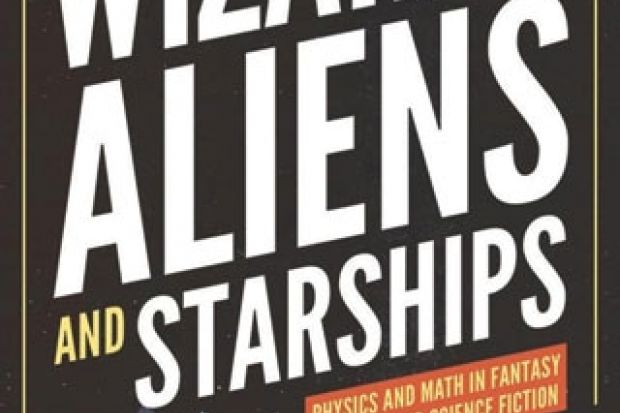I can’t work out whether I love or hate this book. I love it because its analysis of the physics behind numerous accounts of magic and space exploration in fantasy and science fiction writing is fascinating. I hate it because it reveals why I will never be able to realise my dream of saying “Beam me up, Scotty” before being teleported; or so Charles Adler has convinced me.
Like many mathematicians and scientists, I spent my formative years glued to television series such as Star Trek, relishing the idea of colonising unknown areas of the universe and communicating with aliens. Adler, a professor of physics, explains the science required to enable such things to become a reality and then, rather to my disappointment, generally shows why it won’t happen. Until reading this book, I hadn’t realised how much I was still harbouring a secret desire for the scientifically impossible.
This is a book for science fiction enthusiasts, and can be enjoyed by anyone with a smattering of mathematics. Adler rightly states that it helps to be familiar with the various forms of energy and power and how they can be transformed. Possibly a little more than this would allow the reader to fully appreciate and grasp the detail and not be intimidated by the frequent equations and graphs that punctuate the text. As a lecturer, I feel that one of the book’s delights is that the examples can be used to enhance classes and illustrate discussions of different physical phenomena. Indeed, Adler has used much of the book in a lecture series, and has placed accompanying examples on the publisher’s website.
But Wizards, Aliens and Starships is not a textbook, nor is it written as such. The entertaining opening section on the physics underlying the magic in fantasy writing investigates some common dilemmas. What to do with the excess mass when the character Draco Malfoy, in J. K. Rowling’s Harry Potter books, is turned into a ferret? How can we explain the change in entropy when a spell changes a disordered state into an ordered one?
The book concludes with a discussion of how long humanity can expect to survive and the future of the universe: another common theme in the work of writers such as Isaac Asimov and Jack Vance. But much of the rest of the book is devoted to considering the possibility of space travel becoming commonplace. Ideas include the space elevator, as in Arthur C. Clarke’s The Fountains of Paradise, and the reality of space colonies depicted in novels such as George O. Smith’s The Complete Venus Equilateral. Adler concludes this section with a discussion about the likelihood of aliens existing, the possibility of time travel and whether humans could live on other planets.
The underlying argument is that while many of these ideas are physically possible (although perhaps not time travel), they would consume prohibitive amounts of fuel and energy. Thus, given the world’s already high oil consumption, it is unlikely that they will ever become routine. Other potential sources of energy, such as solar power, are considered and their impracticability for this purpose demonstrated.
The physics is well explained and Adler offers entertaining examples. He discusses how science is influenced by the technology available. As a child, I used to dream of having a small device to enable me to communicate secretly with friends and to obtain answers to homework. Many of today’s kids have such objects. I wonder whether in 100 years we will have discovered currently unknown technologies that make possible other far-fetched products of the vivid imaginations of science fiction authors. I certainly hope so.
Wizards, Aliens and Starships: Physics and Math in Fantasy and Science Fiction
By Charles L. Adler
Princeton University Press, 392pp, £19.95
ISBN 9780691147154 and 9781400848362
Published 19 February 2014
Register to continue
Why register?
- Registration is free and only takes a moment
- Once registered, you can read 3 articles a month
- Sign up for our newsletter
Subscribe
Or subscribe for unlimited access to:
- Unlimited access to news, views, insights & reviews
- Digital editions
- Digital access to THE’s university and college rankings analysis
Already registered or a current subscriber? Login





